Suzuki S-Cross vs VW T-Roc - Differences and prices compared
Compare performance (110 HP vs 150 HP), boot space and price (21800 £ vs 26400 £ ) at a glance. Find out which car is the better choice for you – Suzuki S-Cross or VW T-Roc?
Costs and Efficiency:
Price and efficiency are often the first things buyers look at. Here it becomes clear which model has the long-term edge – whether at the pump, the plug, or in purchase price.
Suzuki S-Cross has a distinct advantage in terms of price – it starts at 21800 £ , while the VW T-Roc costs 26400 £ . That’s a price difference of around 4676 £.
Fuel consumption also shows a difference: Suzuki S-Cross manages with 5.30 L and is therefore slight more efficient than the VW T-Roc with 5.50 L. The difference is about 0.20 L per 100 km.
Engine and Performance:
Power, torque and acceleration say a lot about how a car feels on the road. This is where you see which model delivers more driving dynamics.
When it comes to engine power, the VW T-Roc has a evident edge – offering 150 HP compared to 110 HP. That’s roughly 40 HP more horsepower.
In terms of top speed, the VW T-Roc performs slightly better – reaching 212 km/h, while the Suzuki S-Cross tops out at 185 km/h. The difference is around 27 km/h.
There’s also a difference in torque: VW T-Roc pulls minimal stronger with 250 Nm compared to 235 Nm. That’s about 15 Nm difference.
Space and Everyday Use:
Whether family car or daily driver – which one offers more room, flexibility and comfort?
Both vehicles offer seating for 5 people.
In curb weight, Suzuki S-Cross is somewhat lighter – 1280 kg compared to 1465 kg. The difference is around 185 kg.
In terms of boot space, the VW T-Roc offers slight more room – 475 L compared to 430 L. That’s a difference of about 45 L.
In maximum load capacity, the VW T-Roc performs minimal better – up to 1350 L, which is about 120 L more than the Suzuki S-Cross.
When it comes to payload, VW T-Roc noticeable takes the win – 515 kg compared to 405 kg. That’s a difference of about 110 kg.
Who wins the race in the data check?
The VW T-Roc is far ahead overall in the objective data comparison.
This result only shows which model scores more points on paper – not which of the two cars feels right for you.
Costs and Consumption
View detailed analysis
Engine and Performance
View detailed analysis
Dimensions and Body
View detailed analysis
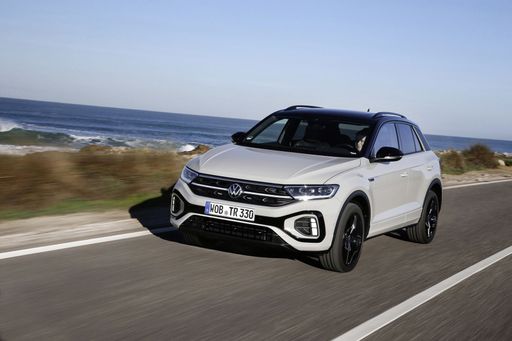
VW T-Roc
Suzuki S-Cross
The Suzuki S-Cross is a neatly packaged crossover that puts everyday practicality ahead of showy theatrics, offering a comfortable cabin and predictable handling that suit family life and weekend errands alike. It’s not a headline-grabber, but its sensible packaging, low-key charm and reputation for reliability make it a shrewd choice for buyers who prefer smart value over flash.
details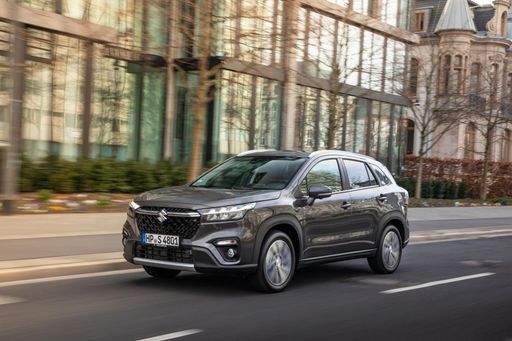
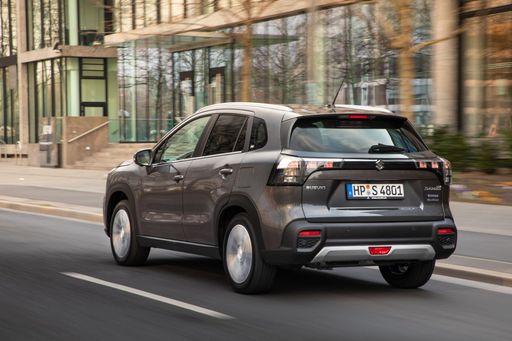
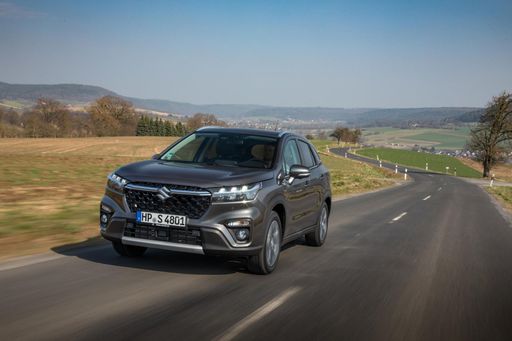
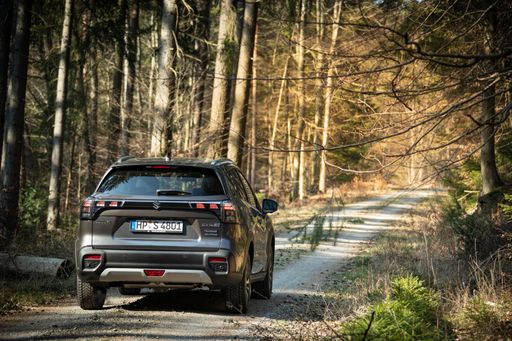
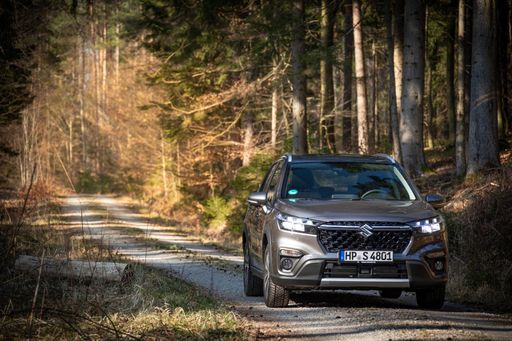
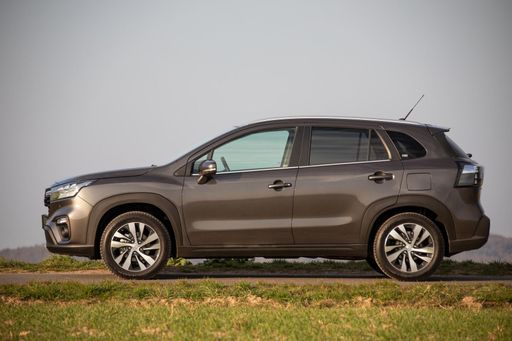
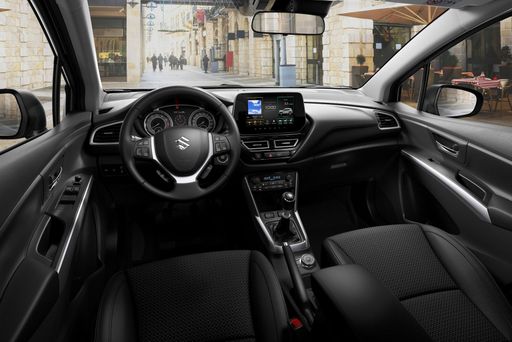
VW T-Roc
The VW T-Roc mixes cheeky, coupe-like styling with the everyday sense and space of an SUV, so it looks fun without sacrificing family sense. It’s a likeable all-rounder with tidy road manners and plenty of personality, ideal if you want a car that’s practical enough for chores but entertaining enough to enjoy.
details
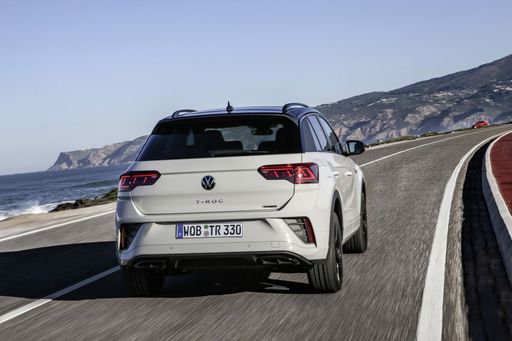
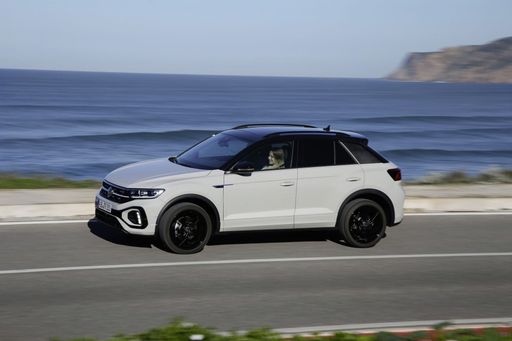
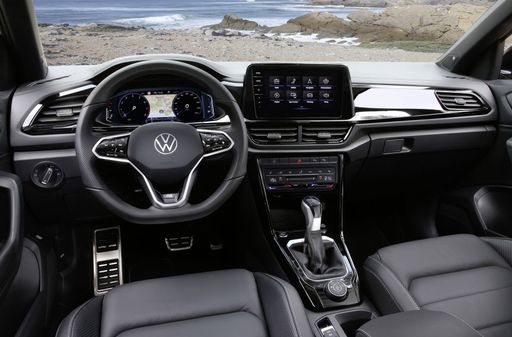
Costs and Consumption |
|
|---|---|
|
Price
21800 - 34200 £
|
Price
26400 - 38600 £
|
|
Consumption L/100km
5.3 - 5.8 L
|
Consumption L/100km
5.5 - 6.3 L
|
|
Consumption kWh/100km
-
|
Consumption kWh/100km
-
|
|
Electric Range
-
|
Electric Range
-
|
|
Battery Capacity
-
|
Battery Capacity
-
|
|
co2
119 - 138 g/km
|
co2
126 - 143 g/km
|
|
Fuel tank capacity
47 L
|
Fuel tank capacity
50 L
|
Dimensions and Body |
|
|---|---|
|
Body Type
SUV
|
Body Type
SUV
|
|
Seats
5
|
Seats
4 - 5
|
|
Doors
5
|
Doors
5
|
|
Curb weight
1280 - 1385 kg
|
Curb weight
1465 - 1539 kg
|
|
Trunk capacity
430 L
|
Trunk capacity
284 - 475 L
|
|
Length
4305 mm
|
Length
4373 mm
|
|
Width
1785 mm
|
Width
1811 - 1828 mm
|
|
Height
1580 mm
|
Height
1573 mm
|
|
Max trunk capacity
1230 L
|
Max trunk capacity
1350 L
|
|
Payload
395 - 405 kg
|
Payload
368 - 515 kg
|
Engine and Performance |
|
|---|---|
|
Engine Type
Petrol MHEV
|
Engine Type
Petrol, Petrol MHEV
|
|
Transmission
Manuel, Automatic
|
Transmission
Manuel, Automatic
|
|
Transmission Detail
Manual Gearbox, Automatic Gearbox
|
Transmission Detail
Manual Gearbox, Dual-Clutch Automatic
|
|
Drive Type
Front-Wheel Drive, All-Wheel Drive
|
Drive Type
Front-Wheel Drive
|
|
Power HP
110 HP
|
Power HP
115 - 150 HP
|
|
Acceleration 0-100km/h
-
|
Acceleration 0-100km/h
8.9 - 12.3 s
|
|
Max Speed
180 - 185 km/h
|
Max Speed
196 - 212 km/h
|
|
Torque
235 Nm
|
Torque
200 - 250 Nm
|
|
Number of Cylinders
4
|
Number of Cylinders
3 - 4
|
|
Power kW
81 kW
|
Power kW
85 - 110 kW
|
|
Engine capacity
1373 cm3
|
Engine capacity
999 - 1498 cm3
|
General |
|
|---|---|
|
Model Year
2025
|
Model Year
2024 - 2025
|
|
CO2 Efficiency Class
D, E
|
CO2 Efficiency Class
E, D
|
|
Brand
Suzuki
|
Brand
VW
|
What drive types are available for the Suzuki S-Cross?
The Suzuki S-Cross is available as Front-Wheel Drive or All-Wheel Drive.




